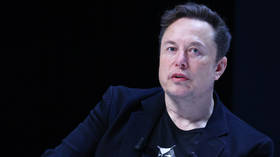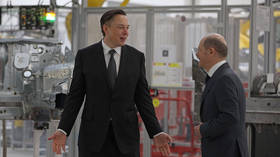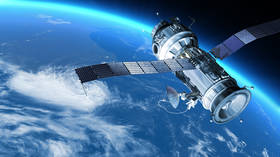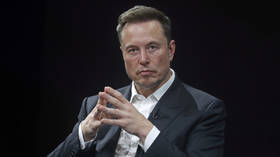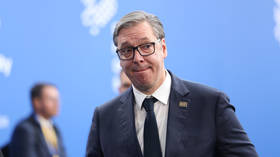Scholz hits back at Musk in New Year’s address
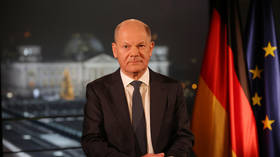
German Chancellor Olaf Scholz took a veiled swipe at tech billionaire Elon Musk during his annual New Year’s Eve address, warning that the country’s future will be decided by its citizens, not the owners of social media platforms.
In a televised message on Tuesday, Scholz highlighted national unity and called for solidarity amid economic challenges. However, he also addressed a more contentious issue: Alleged “foreign interference” in German politics, particularly by Musk, who has openly supported the right-wing Alternative for Germany (AfD) party as the country’s “last spark of hope.”
“Where Germany goes from here will be decided by you – the citizens. It will not be decided by the owners of social media channels,” Scholz said, without calling the X owner out by name.
“In our debates, one might be forgiven for thinking that the more extreme an opinion is, the more attention it garners. But it won’t be the person who yells the loudest who will decide where Germany goes from here. Rather, that will be up to the vast majority of reasonable and decent people,” he added.
We are a country that stands together. Also when times are tough, as we know they are. Many are wondering where we go from here. My answer: With mutual respect, trust, interest and engagement, we can make 2025 a good year. #Newyearsaddresspic.twitter.com/pybHh2PAaU
— Bundeskanzler Olaf Scholz (@Bundeskanzler) December 31, 2024
Musk’s recent endorsements of the AfD, which is under surveillance by domestic intelligence for its alleged “extremist” views, has drawn widespread criticism from German officials. The billionaire, a key adviser to US President-elect Donald Trump, has been vocal on social media and in opinion pieces, praising the AfD and criticizing mainstream German politicians.
Friedrich Merz, the head of the conservative Christian Democratic Union (CDU), called Musk’s endorsement “overbearing and presumptuous.” Lars Klingbeil, co-chairman of Scholz’s Social Democrats, compared Musk to Russian President Vladimir Putin, claiming that both aim to weaken Germany and plunge it into chaos.
A government spokeswoman, Christiane Hoffmann, said at a news conference on Monday that while everyone has the right to an opinion, Musk is attempting to influence the German election.
Scholz’s coalition government collapsed in November over disagreements regarding Ukraine aid and economic policies. The chancellor lost a confidence vote in December, leading to the dissolution of parliament and the scheduling of snap elections on February 23.
The chancellor's New Year’s Eve address also touched on other pressing issues, including Germany’s flagging economy, the recent attack on a Christmas market in Magdeburg, and the upcoming 35th anniversary of German reunification. Scholz urged Germans to resist manipulation and “not let ourselves be played off each other.”
According to Statista, 56% of Germans believe Scholz has done a poor job, while 37% are satisfied with his performance. This rating reflects concerns over Germany’s economic stagnation, his migration policies, and a general perception of ineffective governance.
The AfD is currently polling second with around 20%, behind the CDU/CSU bloc at about 31%. However, a strong performance by the AfD could make forming a government more challenging, as all mainstream parties have ruled out a coalition with it.
